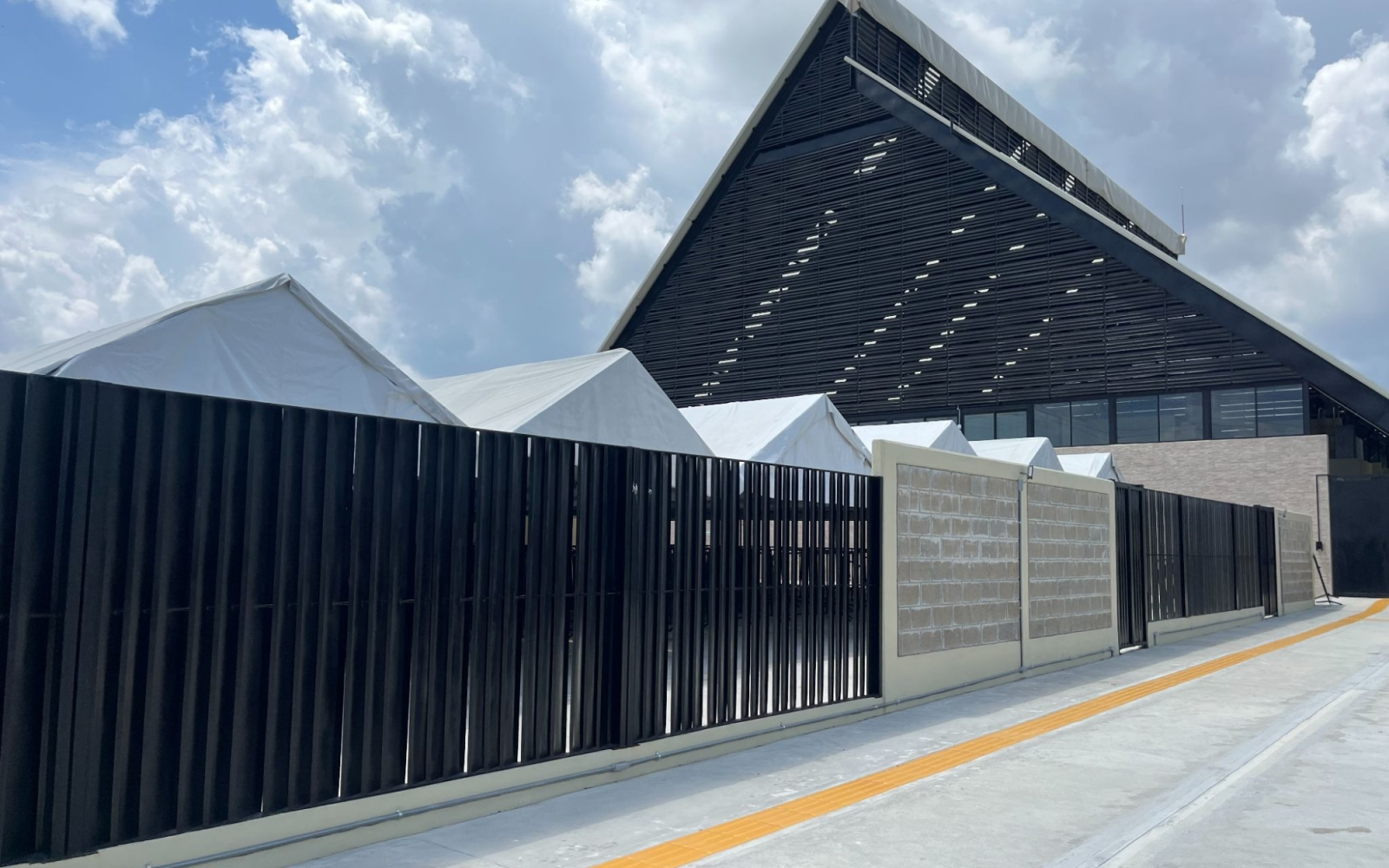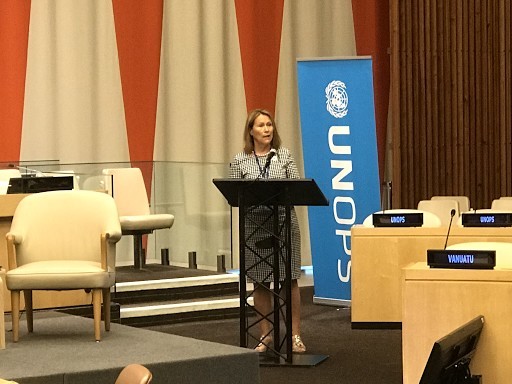The United Nations Office for Project Services (UNOPS)
Ceremony for the Signature of a Framework Agreement between the Government of Mexico and UNOPS
Remarks by Grete Faremo, Under-Secretary-General and Executive Director of UNOPS
[Check against delivery]
Introduction
Excellencies, dignitaries, distinguished guests, ladies and gentlemen.
The context of my visit is a bold agenda: The Sustainable Development Goals (SDGs). And I am here to reaffirm our longstanding commitment with the Government of Mexico. More importantly, we aim to take our partnership further in support of national priorities.
We offer our help to build better public services and improve public management. We bring our expertise to challenges where maximizing transparency, effectiveness and efficiency are critical, and which can serve to make a real difference in the fight against corruption.
I would especially like to thank you two for your leadership and support: President Andrés Manuel Lopez Obrador, and Secretary of Foreign Affairs, Marcelo Ebrard.
About UNOPS
Mr. President,
If anyone is unfamiliar with UNOPS, allow me to share a few details.
As the only fully self-financing part of the UN family, we are unique. We provide services to governments. We have expertise in procurement, infrastructure, and also on advising and managing projects.
We often work under very challenging circumstances.
We’ve destroyed chemical weapons in Syria.
We’ve brought millions of tonnes of life-saving supplies to Yemen.
After the earthquake in Haiti we assessed more than 400,000 buildings, and then delivered better community infrastructure.
Public procurement
At UNOPS, we support our national, public partners in many ways.
In public procurement, we introduce transparent practices and open up new markets. We focus on lower costs, increased quality, and at the same time, reduce the potential for corruption.
More recently, we have improved public procurement in countries like Honduras and Guatemala. In Guatemala, for example, we are supporting the national Institute of Social Security. Through improvements in their procedures and systems, we have saved the institute more than 50% on the prices of medicines – which amounts to more than $150 million.
Reductions in public health expenditures offer many possibilities.
They can allow for more and better medicines to be supplied.
They can allow for improvements in infrastructure – both economic and physical – for the benefit of patients nationwide.
Infrastructure
We also have vast experience in our mandated area of infrastructure. We create local jobs and support local, economic growth. In Latin America alone, we have rehabilitated and constructed health clinics and hospitals in Argentina, Guatemala, Uruguay and Nicaragua. In Peru, we have ensured transparent processes for many national infrastructure projects. These include airports, national highways, the port of Callao and parts of the Lima metro. And in Colombia, we are part of important social housing programmes for more than 28,000 families across 60 locations.
Supporting Mexico
Mr. President, as you can see from this list we are very experienced in Latin America, but not so much in Mexico. In the State of Jalisco, we helped evaluate public procurement systems and implemented the Río Verde project, to ensure the sustainable use of natural resources. And currently, we are supporting the improvement of transport services and bidding processes for the cable car service in Mexico City.
These are very important projects and we want to scale up our support. So today, we have reached a milestone in our Mexico-UNOPS partnership. This agreement will enable Mexican public entities – federal, state and autonomous – to use the full range of services that UNOPS can provide.
Social impact investing
One of our most important initiatives to date is social impact investing. Our first project of this type – agreed last year – secured investment in Mexico’s renewable energy sector, through a wind farm. And four new agreements cover the construction of more than 330,000 affordable homes in Ghana, Kenya, India and across the Caribbean.
Developing economies in particular, need large-scale investments in sustainable infrastructure.
Our initiative is about accelerating investment in infrastructure. This provides opportunities for socially conscious investors to generate financial returns while ensuring their contributions make a positive social, environmental and economic impact.
Construction work will include local materials, equipment and expertise, which in turn, will provide jobs – many jobs – to drive local economic growth.
UNOPS role is based on two core aspects: Our decades of operational experience and our willingness to invest, to demonstrate our commitments to de-risk projects so that private sector funds are more likely to step in.
Through social impact investing we are breaking down barriers that may prevent private investors from funding long-term development in emerging markets. The benefits are clear. This is about accelerating progress towards the SDGs.
Conclusion
Mr. President, in conclusion, we are here because the Government of Mexico requests our collaboration.
We welcome, and are very glad and humbled to accept, this request. We are very excited by this agreement.
Working together offers a huge potential for efficiency gains, and for more effective projects. As the UN Secretary General has stated, stronger multilateral partnerships between Member States, international organizations and civil society, is the only way to “find solutions to global problems, that no nation alone can resolve.” The agreement we are signing today can only help create opportunities for all of the population, and especially for those people with the greatest needs.
QUE VIVA MÉXICO!
Thank you very much.









